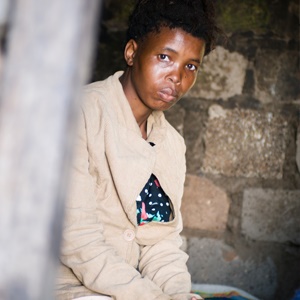
Globally more TB patients simultaneously have diabetes than TB patients co-infected with HIV – and the number is steadily rising.
This is according to Dr Katharina Ronacher, a medical biologist at Stellenbosch University (SU), who is leading a research group studying the TB-diabetes co-epidemic.
Read: How TB, HIV and Diabetes medication destroy your health
"In the South African population about 12% of TB patients also have type 2 diabetes," says Ronacher.
She notes that this number is expected to rise, as the prevalence of diabetes in South Africa is increasing dramatically as more people are adopting a Western lifestyle.
Read: Diabetes: Africa's hidden pandemic
Diabetes mellitus (DM) - commonly referred to as "diabetes" - is a metabolic disease that causes high blood sugar levels, and is increasingly common among South Africans.
A recent study found that in South African Coloured population in the Western Cape Province, up to 25% of people have diabetes. "This is very high," says Ronacher, who is part of the SU Immunology Research Group at the Faculty of Medicine and Health Sciences.
Research has shown that one fifth of people (19%) with diabetes are not aware that they have the disease. In South Africa the lack of early diagnosis of diabetes is exacerbated by poor screening services, and most people are diagnosed only once they develop complications from the disease.
Read: Diabetes fuels TB: study
"The dual burden of TB and diabetes is greater in certain regions than in others," Ronacher explains. "In India, for example, up to 50% of TB patients also have diabetes."
"Not only are people with diabetes more likely to get TB, they are also less likely to respond to treatment, which can lead to relapse or even death," explains Ronacher.
One reason for this could be that the levels of TB medication are generally lower in diabetes patients than patients without diabetes co-morbidity.
The cause for this is unknown and it is unclear whether it is due to interaction between the two diseases, or because people with diabetes generally have a higher body mass index and medication doses are not adjusted correctly.
Research has also shown that TB can temporarily increase blood sugar levels, which can push a pre-diabetic person into full diabetes. Some TB drugs, especially rifampicin, interfere with the efficacy of oral diabetes medications.
Read: 8 things you need to know about diabetes
Ronacher's research group also investigates whether patients with poorly-controlled diabetes (mostly due to not taking medication regularly), have reduced immune responses to the germs that cause TB than patients whose diabetes are controlled.
Diabetes is a chronic condition and researchers believe it weakens the immune system and triples the risk a person will develop the lung disease,
Ronacher has recently been awarded a grant of R25 million by the American National Institutes of Health to explore the risk of developing TB from household contacts with diabetes, compared to household contact without diabetes.
The Immunology Research Group is also involved in a project to screen TB patients for diabetes, and vice versa, to gain a better understanding of how these two diseases interact.
Scope of the problem
The number of people living with diabetes and its prevalence are growing in all regions of the world.
In 2014, 422 million adults (or 8.5% of the population) had diabetes, compared with 108 million (4.7%) in 1980, with most living in developing countries.
The big worry is that six of the top 10 countries projected to have the greatest numbers of diabetics by 2035 - China, India, Brazil, Indonesia, Pakistan, and Russia - are classified as high TB burden countries by the WHO.
About 75,000 South Africans living with diabetes develop TB annually, which makes it vital that all South Africans with tuberculosis (TB) should be checked for diabetes and vice versa.
South Africa is one of the countries with the highest burden of TB, with the World Health Organisation (WHO) statistics giving an estimated incidence of 500 000 cases of active TB in 2011.
When it comes to diabetes, the highest prevalence is among the Indian population in South Africa (11-13%) as this group has a strong genetic predisposition for diabetes. This is followed by 8-10% in the coloured community, 5-8% among blacks and 4% among whites.
So about 1% of the population of about 50 million develop active TB disease each year. This is worldwide the third highest incidence of any country after India and China, and the incidence has increased by 400% over the past 15 years.
Out of the 500 000 incident cases in South Africa it is estimated by the World Health Organization that about 330 000 (66%) people have both HIV and TB infection.
Read more:
Stellenbosch University discover a key way to kill the tuberculosis bacterium
Additional resources: WHO, Health24.com. http://www.gov.za/




 Publications
Publications
 Partners
Partners










